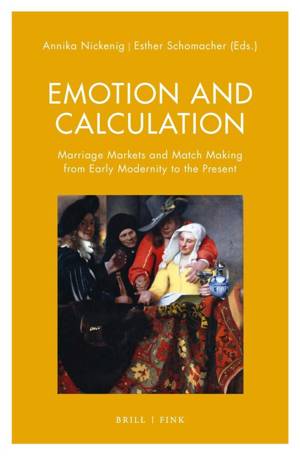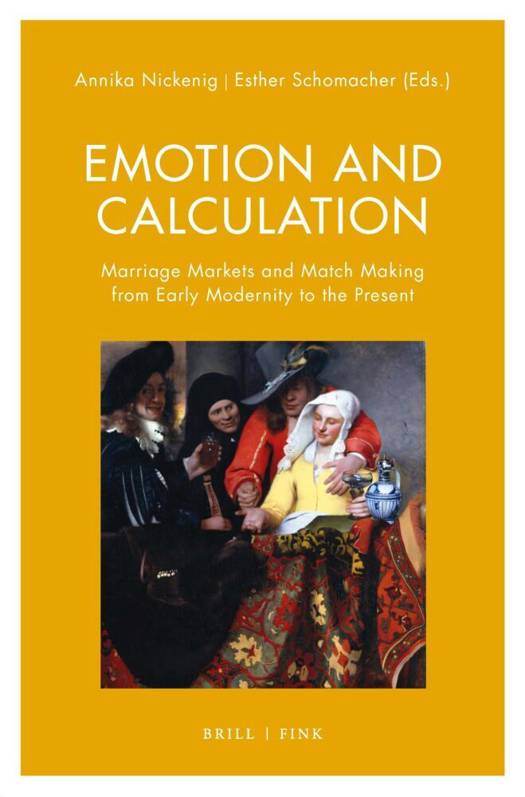
Je cadeautjes zeker op tijd in huis hebben voor de feestdagen? Kom langs in onze winkels en vind het perfecte geschenk!
- Afhalen na 1 uur in een winkel met voorraad
- Gratis thuislevering in België vanaf € 30
- Ruim aanbod met 7 miljoen producten
Je cadeautjes zeker op tijd in huis hebben voor de feestdagen? Kom langs in onze winkels en vind het perfecte geschenk!
- Afhalen na 1 uur in een winkel met voorraad
- Gratis thuislevering in België vanaf € 30
- Ruim aanbod met 7 miljoen producten
Zoeken
Emotion and Calculation
Marriage Markets and Match Making from Early Modernity to the Present
€ 55,45
+ 110 punten
Omschrijving
Love and economics are usually considered to be opposites: While love is seen as an irrational, unexplainable and ungovernable feeling towards another person, economics is regarded as the art of egoistic, profit-oriented, rational calculations and actions. But are they, really?
By examining a wide range of literary and historical sources throughout European modernity, the papers assembled inthis volume investigate how the process of finding a partner or spouse interlaces love and economics. In their analysis of Early Modern marriage legislation and drama, Spanish novellas, Jane Austen's novels, 20th Century films, today's dating apps and more, they reveal major cultural-historical changes in the notions of love and economics, and stress the role that epistemic discourses, concepts of gender, and various media play in their interrelated history. Despite their differing findings, they all show one thing: that "opposition "is far too simple a term to grasp the complicated relation of emotion and calculation.
By examining a wide range of literary and historical sources throughout European modernity, the papers assembled inthis volume investigate how the process of finding a partner or spouse interlaces love and economics. In their analysis of Early Modern marriage legislation and drama, Spanish novellas, Jane Austen's novels, 20th Century films, today's dating apps and more, they reveal major cultural-historical changes in the notions of love and economics, and stress the role that epistemic discourses, concepts of gender, and various media play in their interrelated history. Despite their differing findings, they all show one thing: that "opposition "is far too simple a term to grasp the complicated relation of emotion and calculation.
Specificaties
Betrokkenen
- Uitgeverij:
Inhoud
- Aantal bladzijden:
- 294
- Taal:
- Engels
- Reeks:
- Reeksnummer:
- nr. 14
Eigenschappen
- Productcode (EAN):
- 9783770568604
- Verschijningsdatum:
- 9/12/2025
- Uitvoering:
- Hardcover
- Afmetingen:
- 162 mm x 26 mm
- Gewicht:
- 683 g

Alleen bij Standaard Boekhandel
+ 110 punten op je klantenkaart van Standaard Boekhandel
Beoordelingen
We publiceren alleen reviews die voldoen aan de voorwaarden voor reviews. Bekijk onze voorwaarden voor reviews.








